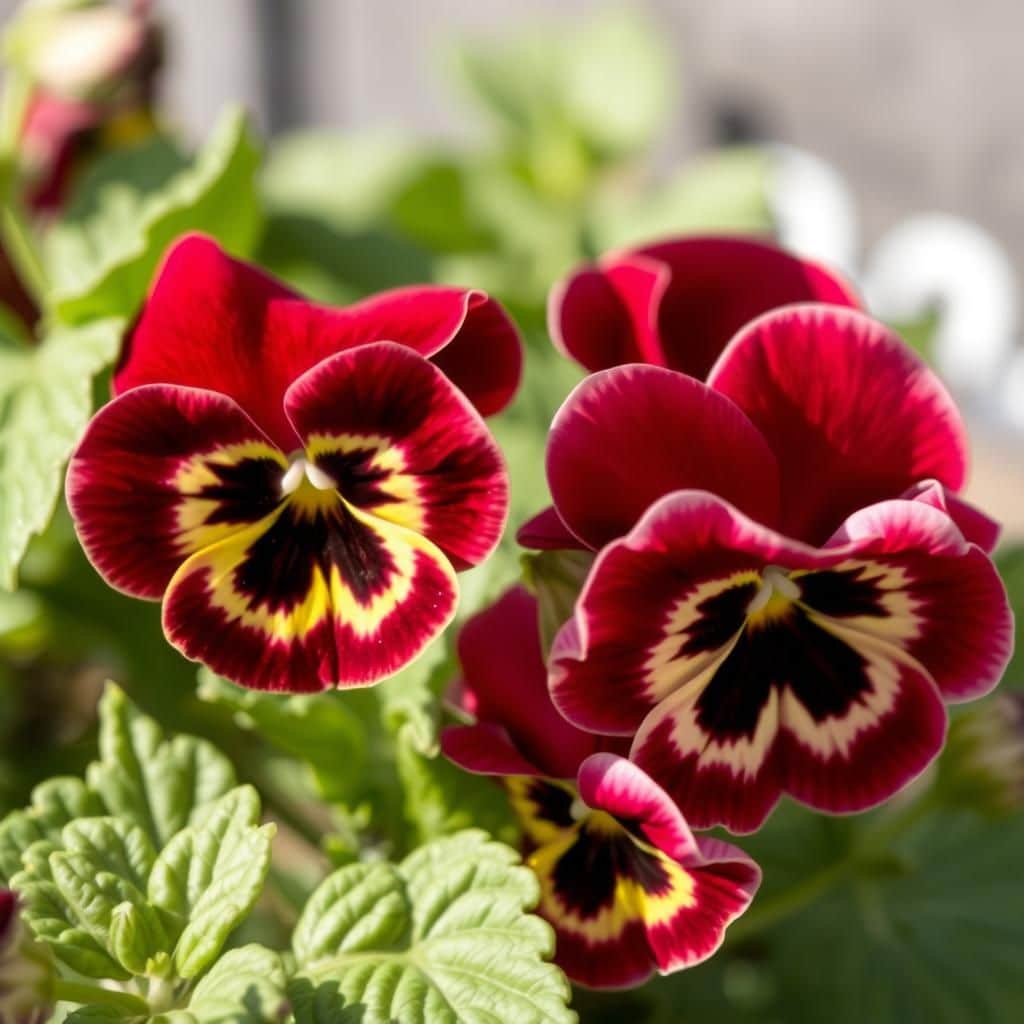Should I Remove Dead Flowers from Pansies? Essential Tips for Pruning and Plant Care

Pansies are beloved for their vibrant colors and delicate blooms, often brightening up gardens and flower beds. However, as the growing season progresses, you may notice dead flowers detracting from their charm. This raises the important question: should you remove dead flowers from your pansies? Pruning and proper plant care are essential for maintaining the health and appearance of these lovely plants. In this article, we'll explore the reasons for deadheading, the best techniques for pruning, and essential tips to ensure your pansies thrive throughout their blooming season. Discover how simple steps can enhance the beauty of your garden.
Should I Remove Dead Flowers from Pansies?
Yes, you should remove dead flowers from pansies to promote healthier growth and enhance their overall appearance. This practice, known as deadheading, involves cutting off spent blooms, which helps redirect the plant's energy towards producing new flowers rather than seed production. By keeping your pansies free of dead flowers, you encourage continuous blooming and improve the plant's overall vitality, leading to a more vibrant and lush garden display.
What is Deadheading?
Deadheading is the process of removing dead or faded flowers from plants. For pansies, this entails finding the blooms that have wilted and are no longer vibrant. By cutting these flowers back, gardeners can stimulate the plant to produce more buds. This not only keeps the plant looking neat and appealing but also encourages it to prolong its blooming season.
Benefits of Removing Dead Flowers
Removing dead flowers offers multiple benefits for pansies. It enhances the plant's aesthetic value, making the garden look tidier and more vibrant. Additionally, deadheading allows the plants to divert their resources from seed production to generating new flowers, thereby prolonging their blooming period and ensuring that the garden has continuous color throughout the growing season.
When to Deadhead Pansies
The best time to deadhead pansies is regularly throughout their blooming season, especially after you notice wilted or faded flowers. A good rule of thumb is to check for dead flowers at least once a week. This encourages the plants to remain in a blooming state, significantly enhancing their longevity and flowering potential.
See also:
How to Properly Deadhead Pansies
To properly deadhead pansies, use clean, sharp scissors or pruning shears to snip off the dead flowers right above the nearest leaf node. This technique ensures that the plant can heal quickly and encourages new growth. Make sure not to pull the flowers off, as this can damage the stem and hinder new growth.
Will Deadheading Affect Pansy Health?
Yes, deadheading can positively affect the health of pansies. By removing dead flowers, you help prevent the potential spread of disease that can occur when spent blooms decay on the plant. Additionally, maintaining the cleanliness of the plant reduces pest attraction and promotes vigorous growth, contributing to a stronger, healthier overall plant.
| Aspect | Details |
|---|---|
| Process | Cut off dead flowers to encourage new blooms. |
| Benefits | More vibrant appearance and prolonged blooming. |
| Frequency | Check and deadhead at least once a week. |
| Method | Use clean scissors to cut above the leaf node. |
| Health Impact | Reduces disease and pest issues, promoting vigor. |
Understanding the Benefits of Deadheading Pansies
Removing dead flowers from pansies, a process known as deadheading, is crucial for ensuring healthy plant growth. By eliminating spent blooms, you encourage the plant to focus its energy on producing new flowers instead of going to seed. This practice not only enhances the appearance of your pansies, making them look more vibrant, but it also promotes a longer blooming period. In addition to aesthetic benefits, deadheading can help prevent the spread of diseases, as decaying flowers can attract pests and lead to rot. Thus, incorporating deadheading into your routine plant care is a valuable strategy for maintaining the health and vitality of your pansies.
The Importance of Regular Maintenance
Regular maintenance of your pansy plants is essential for promoting optimal growth and ensuring a vibrant display of flowers throughout the season. This includes routine tasks such as watering, fertilization, and, importantly, deadheading. Consistency in your maintenance schedule helps to prevent the plants from becoming stressed and encourages healthy foliage and abundant blooms. By staying proactive with upkeep, you can extend the life of your pansies and enhance their overall beauty.
When to Deadhead Pansies
Timing is a critical aspect of the deadheading process for pansies. It is generally recommended to deadhead wilted flowers as soon as they begin to fade, which is typically during the blooming season. Observing your plants regularly allows you to spot spent blooms before they go to seed, thus preventing them from draining energy from the healthier parts of the plant. Ideally, deadheading should be done on a weekly basis to maintain the flowering cycle and encourage continuous growth.
See also:
How to Properly Deadhead Pansies
Deadheading pansies is a simple process that can significantly improve their health and appearance. To effectively remove dead flowers, use your fingers or clean pruning shears to pinch or cut the spent blooms just above the node or first set of leaves. This method ensures that you are not damaging the surrounding foliage and encourages new growth from the base. Remember to aim for consistency in deadheading, as regular attention leads to the best results.
Signs Your Pansies Need Deadheading
Identifying when your pansies require deadheading is straightforward, especially if you are familiar with their growth patterns. Look for flowers that have wilted or turned brown, as these are clear indicators that it’s time to prune. Additionally, if you notice a significant decrease in bloom production or if your pansies start to appear leggy, it often means that deadheading has been neglected. Prompt attention to these signs helps restore the plants’ vitality.
Benefits of Deadheading Beyond Aesthetics
While the aesthetic appeal of deadheading is evident, the practice also provides several ecological benefits for your pansies. By removing dead flowers, you not only enhance the plant's appearance but also foster a healthier growth environment. Healthy plants are better equipped to resist pests and diseases, thereby reducing the need for chemical treatments. Additionally, deadheading can lead to more abundant blooms, creating a more visually appealing landscape.
Questions from Our Readers
Should I remove dead flowers from pansies?
Yes, it is recommended to remove dead flowers from pansies to encourage new growth and blooming. This process, known as deadheading, helps the plant to focus its energy on producing new flowers instead of sustaining old, dead ones.
How often should I deadhead my pansies?
You should check your pansies regularly and deadhead them as soon as you notice dead or wilted flowers. Doing this weekly during the blooming season will keep your pansies healthy and vibrant.
See also:
What tools do I need to remove dead flowers from pansies?
You can simply use your fingers to pinch off the dead flowers, but for a more precise approach, a pair of sharp scissors or pruning shears will work well. Ensuring your tools are clean can help prevent any potential disease.
Will removing dead flowers harm my pansies?
No, removing dead flowers will not harm your pansies; in fact, it will benefit them. By engaging in this maintenance, you're allowing the plant to redirect its resources towards producing healthy foliage and new blooms.

If you want to read more articles like Should I Remove Dead Flowers from Pansies? Essential Tips for Pruning and Plant Care, we recommend you check out our Flowers category.
Leave a Reply
Related Articles